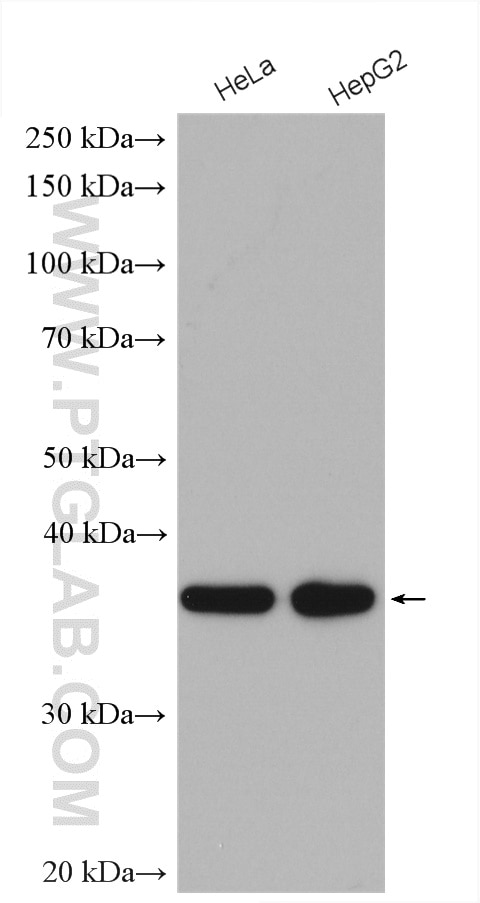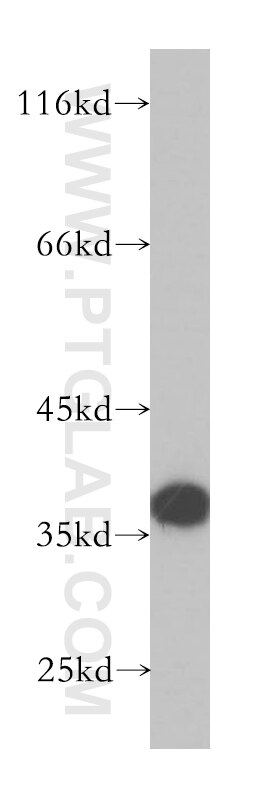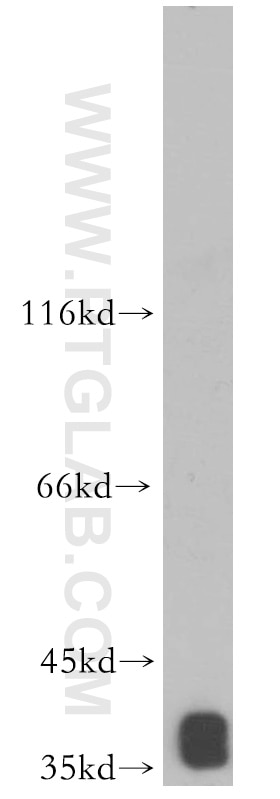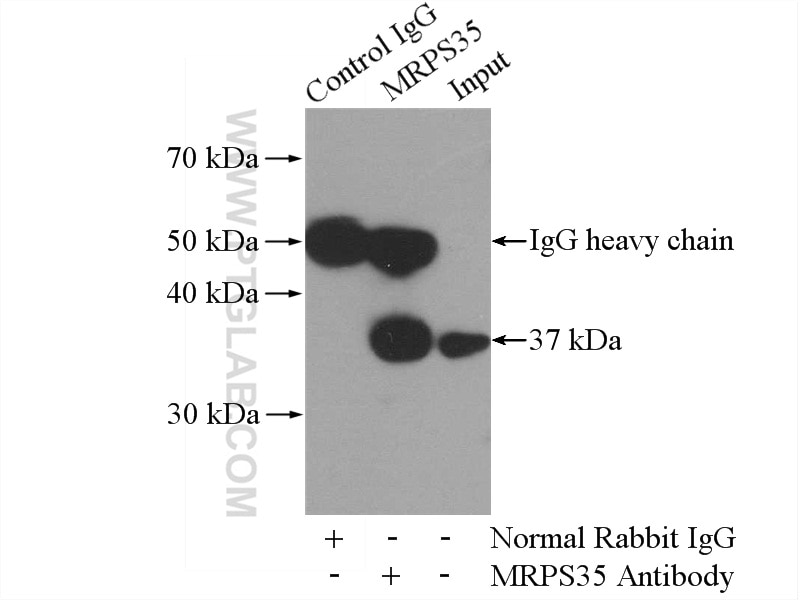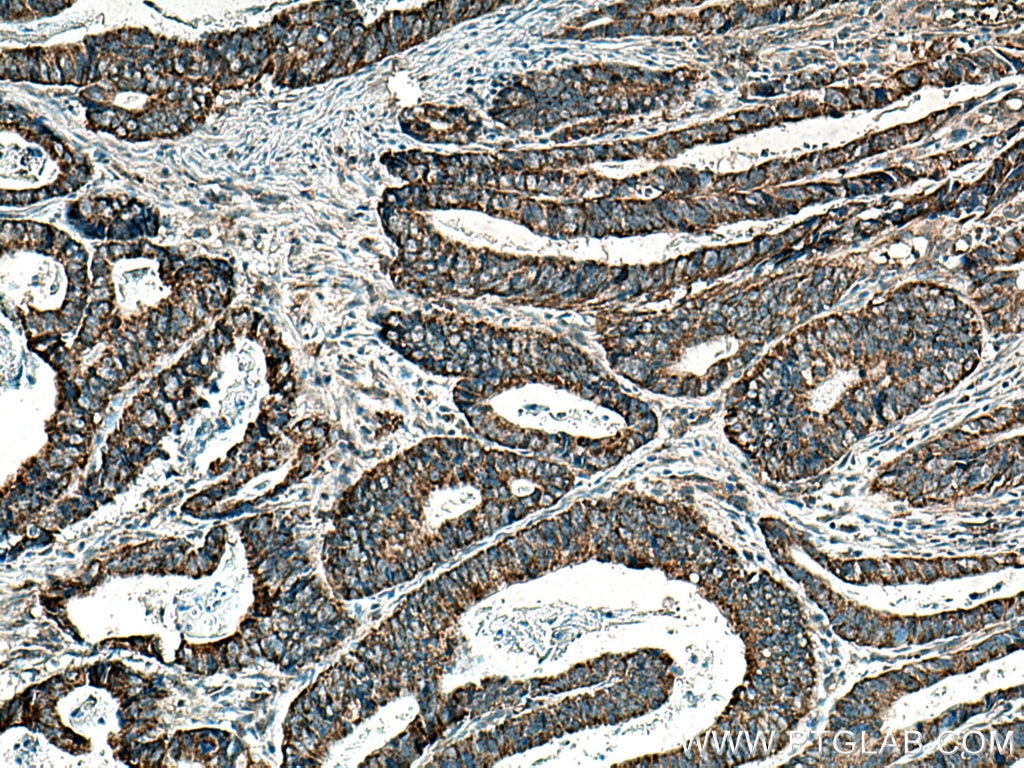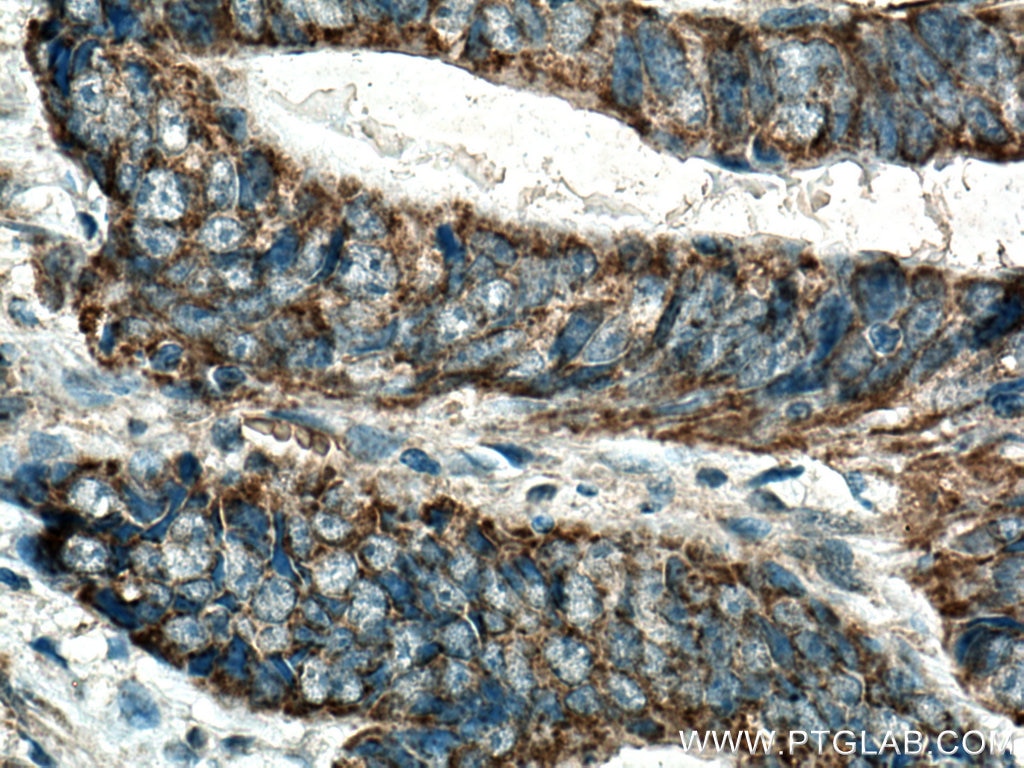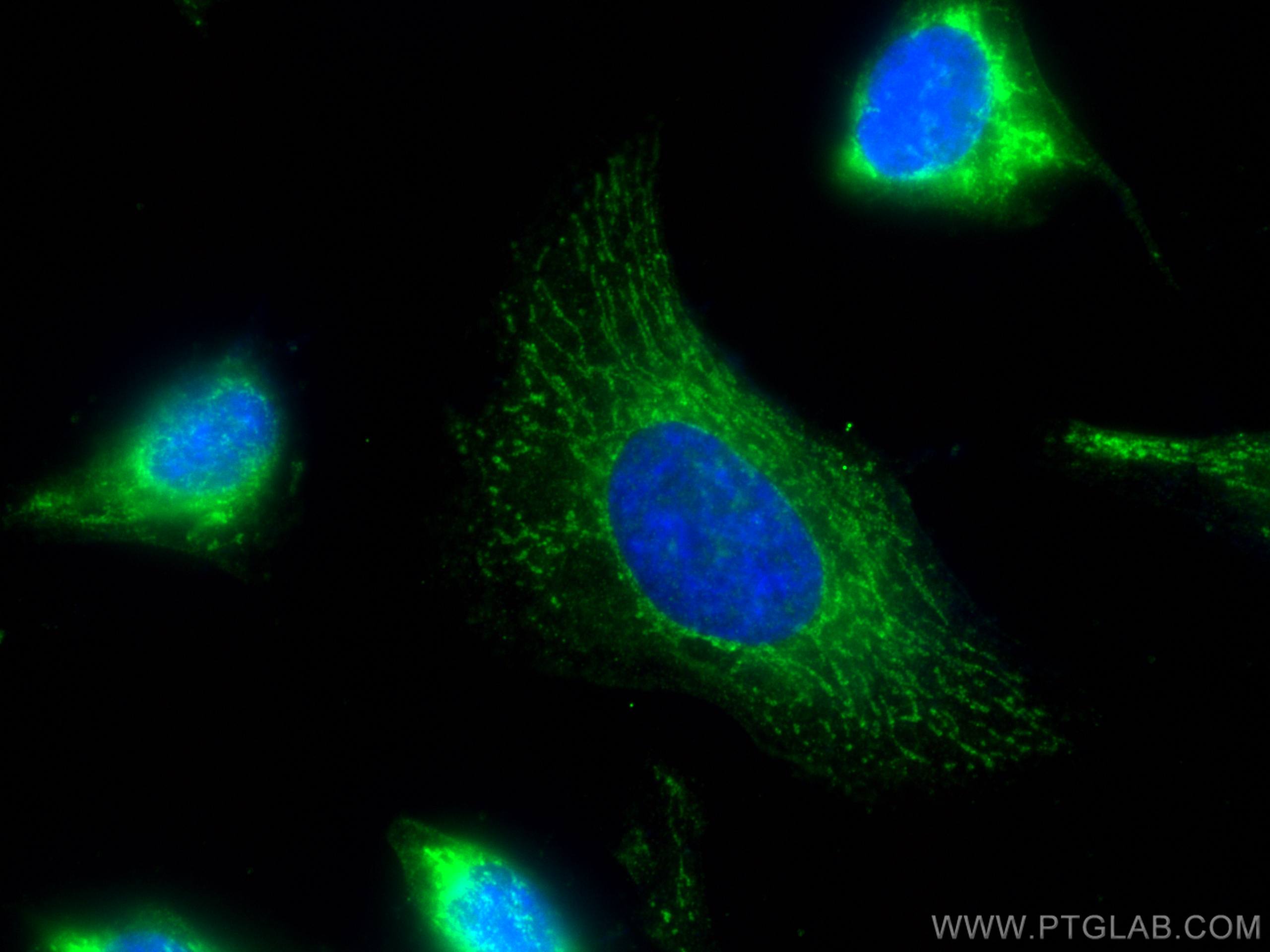Validation Data Gallery
Tested Applications
| Positive WB detected in | HeLa cells, human heart tissue, HepG2 cells |
| Positive IP detected in | HeLa cells |
| Positive IHC detected in | human colon cancer tissue Note: suggested antigen retrieval with TE buffer pH 9.0; (*) Alternatively, antigen retrieval may be performed with citrate buffer pH 6.0 |
| Positive IF/ICC detected in | HeLa cells |
Recommended dilution
| Application | Dilution |
|---|---|
| Western Blot (WB) | WB : 1:2000-1:10000 |
| Immunoprecipitation (IP) | IP : 0.5-4.0 ug for 1.0-3.0 mg of total protein lysate |
| Immunohistochemistry (IHC) | IHC : 1:50-1:500 |
| Immunofluorescence (IF)/ICC | IF/ICC : 1:50-1:500 |
| It is recommended that this reagent should be titrated in each testing system to obtain optimal results. | |
| Sample-dependent, Check data in validation data gallery. | |
Published Applications
| WB | See 30 publications below |
| IP | See 1 publications below |
Product Information
16457-1-AP targets MRPS35 in WB, IHC, IF/ICC, IP, ELISA applications and shows reactivity with human, mouse, rat samples.
| Tested Reactivity | human, mouse, rat |
| Cited Reactivity | human, mouse |
| Host / Isotype | Rabbit / IgG |
| Class | Polyclonal |
| Type | Antibody |
| Immunogen | MRPS35 fusion protein Ag9430 相同性解析による交差性が予測される生物種 |
| Full Name | mitochondrial ribosomal protein S35 |
| Calculated molecular weight | 323 aa, 37 kDa |
| Observed molecular weight | 37 kDa |
| GenBank accession number | BC015862 |
| Gene Symbol | MRPS35 |
| Gene ID (NCBI) | 60488 |
| RRID | AB_2146521 |
| Conjugate | Unconjugated |
| Form | Liquid |
| Purification Method | Antigen affinity purification |
| UNIPROT ID | P82673 |
| Storage Buffer | PBS with 0.02% sodium azide and 50% glycerol , pH 7.3 |
| Storage Conditions | Store at -20°C. Stable for one year after shipment. Aliquoting is unnecessary for -20oC storage. |
Background Information
Mammalian mitochondrial ribosomes (mitoribosomes) are responsible for protein synthesis within the mitochondrion. The mitoribosomes are composed of a 4:1 ratio of protein to RNA, with the proteins forming two subunits, the 28S subunit and the 39S subunit. Across species, the proteins that make up the mitoribosome subunits vary greatly in sequence, preventing easy recognition by sequence homology. MRPS35 (mitochondrial ribosomal protein S35), also known as MDS023, MRPS28 or HDCMD11P, is a 323 amino acid protein that localizes to the mitochondrion, where it exists as a component of the 28S ribosomal subunit and works in conjunction with other MRPs to mediate protein synthesis. Existing as two alternatively spliced isoforms, MRPS35 is encoded by a gene located on human chromosome 10, which houses over 1,200 genes and comprises nearly 4.5% of the human genome. This antibody is a rabbit polyclonal antibody raised against the full length MRPS35 protein. It specifically reacts with the 37kd MRPS35protein.
Protocols
| Product Specific Protocols | |
|---|---|
| WB protocol for MRPS35 antibody 16457-1-AP | Download protocol |
| IHC protocol for MRPS35 antibody 16457-1-AP | Download protocol |
| IF protocol for MRPS35 antibody 16457-1-AP | Download protocol |
| IP protocol for MRPS35 antibody 16457-1-AP | Download protocol |
| Standard Protocols | |
|---|---|
| Click here to view our Standard Protocols |
Publications
| Species | Application | Title |
|---|---|---|
Cell Metab Integrative genetic analysis identifies FLVCR1 as a plasma-membrane choline transporter in mammals | ||
Sci Adv Fidelity of translation initiation is required for coordinated respiratory complex assembly. | ||
Cell Metab Tissue-Specific Loss of DARS2 Activates Stress Responses Independently of Respiratory Chain Deficiency in the Heart. | ||
J Clin Invest AFG3L2 supports mitochondrial protein synthesis and Purkinje cell survival. | ||
Nat Commun Loss of the RNA-binding protein TACO1 causes late-onset mitochondrial dysfunction in mice. |
